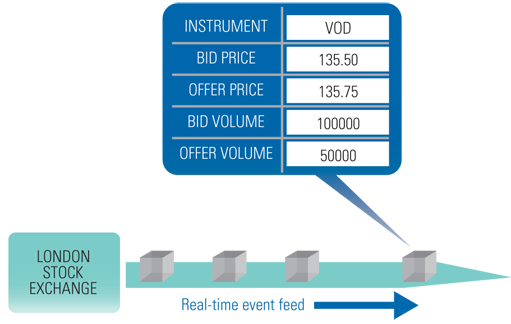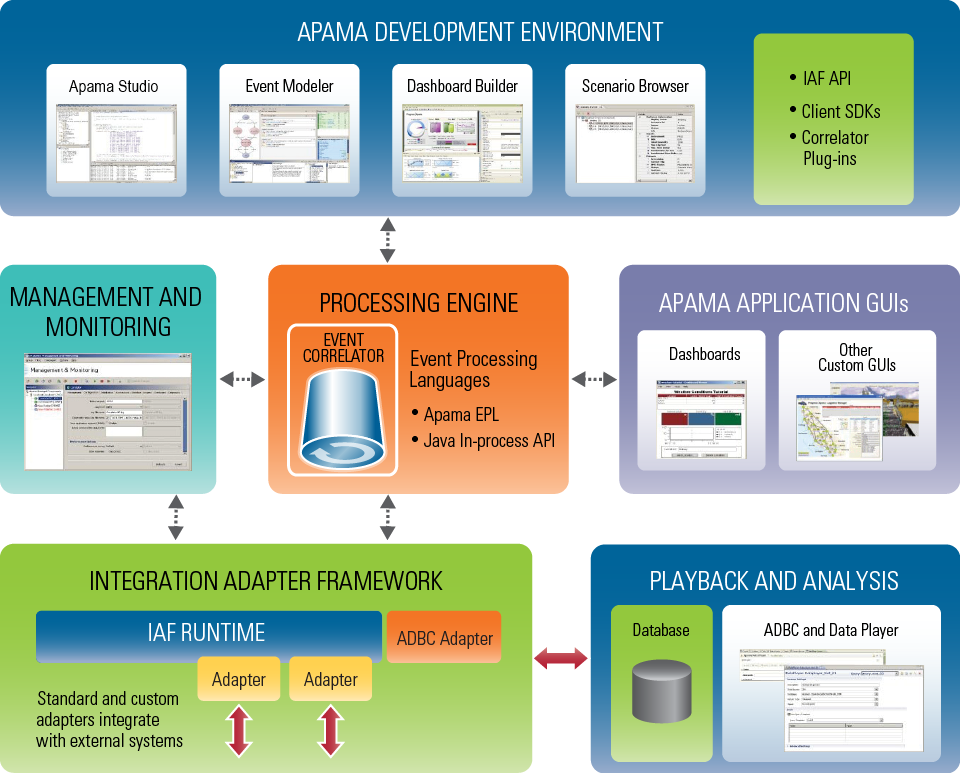What is Apama?
Apama is an event processing platform. It monitors rapidly moving event streams, detects and analyzes important events and patterns of events, and immediately acts on events of interest according to your specifications.
Event-based applications differ from traditional applications in that rather than continuously executing a sequence of instructions, they listen for and respond to relevant events. Events describe changes to particular real-world or computer-based objects, for example a new bid price for Vodafone’s stock on the London Stock Exchange.
Events are collections of attribute-value pairs that describe a change in an object. For example, the figure below shows stock quote events. Each stock quote has a number of attributes, including current bid price, current offer price, and current volumes. In the figure, the highlighted event shows the latest quote for Vodafone stock.
The attributes, or fields, of an individual event class may be of a variety of types, including numerical and textual data. Events with multiple fields can be viewed as multi- dimensional types, in that a query to find an event of interest might involve querying across several of the event fields.
Rather than executing a sequence of activities at some defined point, an event-based system waits and responds appropriately to an asynchronous signal as soon as it happens. In this way, the response is as immediate (or real-time) as possible.
The main Apama features include:

Graphical development tools accessible to business users.

EPL, which is a concise, richly-featured event processing language.

Integration Adapter Framework (IAF), which provides easy integration to external event source and systems.

Sophisticated analytics with native support for temporal arguments.

Sub-second response to detected events and patterns of interest.

Highly scalable, patented, event-driven architecture, supporting tens of thousands of concurrent scenarios.

Integrated tools for creating visually appealing user dashboards.

Flexible event replay for testing new event scenarios and analyzing existing ones.

Tools for managing and monitoring your application.
The following functional diagram shows the main Apama features:


